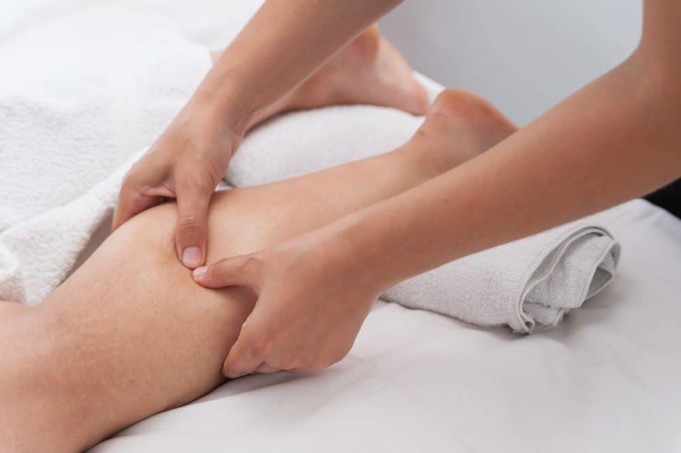Muscle twitches are very common are can happen to us at any time either in small scale or large scale. It may also be frequent or happen once in a blue moon.
Muscle twitching or fasciculation is an involuntary contraction of the muscle. Muscles are made up of fibers that are controlled by nerves. When something triggers or stimulates a nerve, it can cause the fibers in the muscle to contract and this results in a twitch.
Some muscle twitch should not be cause for concern as they tend to go unnoticed although you may feel the twitch below your skin.
Causes of Muscle Twitching
The causes of muscle twitching can be grouped into minor and major causes. The first group which is minor muscle twitching occurs as a result of a less serious condition or life style related issues.
Whereas the major muscle twitching may occur due to other serious medical conditions such as spinal cord and brain disorders.
Minor Causes of Muscle Twitching
These are also common causes of muscle twitching and can be easily resolved. they include;
- Accumulation of lactic acid in the muscle: During exercise or physical activity lactic acid is accumulated in the muscle and this can lead to twitching. This twitching mostly affects the back, legs, and arms.
- Nervous ticks: These are muscle twitches that are caused by anxiety and stress and they can affect the whole body.
- Deficiency of certain nutrients: Deficiencies in some certain nutrients such as vitamin B, Vitamin D, Magnesium and Calcium can cause muscle twitching especially in the eyelids, hands, and calves.
- Irritation: When the eyelid or area around the eye is irritated, it can cause the muscle around the surface of the eyes to twitch.
- Dehydration: When the body is dehydrated, it can cause larger muscles in the body to twitch this is because some muscles contrast during dehydration.
- Consumption of caffeine: Too much intake of caffeine and other stimulants also causes muscles to twitch.
- Reaction to certain drugs/medication: Estrogen pills and corticosteroids can cause spasms which can result in muscle twitching of arms and legs.
Major causes of muscle twitching
Although most twitching is a result of a minor condition, if the twitch cannot be explained or linked to one of the common causes then it indicates that the twitching was triggered by an underlying medical condition.
These conditions are mostly nerve related. Some rare but serious conditions that can cause muscle twitching includes;
- Muscular Dystrophies: Is a group of inherited disease which weakens and damages muscles overtime usually causing the face, hip, neck and shoulder muscles to twitch.
- Amyotrophic Lateral Sclerosis: This is a condition that makes one’s nerve cells to degenerate gradually. The nerve cells control voluntary muscle functions and if they are not functioning properly, this can cause muscle weakness and muscle twitching.
- Multiple Sclerosis: This is a condition that causes a degenerative central nervous system. An example of this condition is “Spasticity” and muscle twitching is a symptom of spasticity.
- Isaac’s Syndrome: Persons with this condition always have their nerves triggering the muscle fibers and this results in regular muscle twitching. Other major medical condition includes kidney disease, lupus, and spinal muscular atrophy.
Diagnosis of the Causes of Muscle Twitching
When you go to see a doctor, he will probably ask you some questions to determine the cause of the twitch. Some of these questions include;
- When did you first notice the twitch?
- Where did the twitch occur?
- How often did the twitch occur?
- How long does the twitch last?
- What other symptoms are you experiencing?
If the doctor suspects an underlying medical condition after a physical exam then other diagnostic tests will be carried out. The doctor may order for;
- CT scan: This uses computers and Xrays to produce different images of the body.
- Blood tests to ascertain the level of your thyroid and also calcium and magnesium deficiency.
- Electromyography, which is used to access the nerve cells that control the muscles. It is usually carried out when the nervous system disorder is suspected.
- MRI scan.
Treatment
Muscle twitching doesn’t really require treatment if the cause is one of the minor causes because the twitch will subside within a few days. However, treatment is required if it is caused by any major condition.
You may need to see a doctor for prescriptions to ease the twitching. These prescriptions may include drugs and muscle relaxant creams.
Prevention of Muscle Twitching
Although muscle twitching is not always preventable, there are some things that one can do to help lower the risks.
- Adequate Sleep: Getting enough sleep gives the nerves of the body time to rest as well and helps the body to recover and heal.
- Limit caffeine intake: Avoid eating foods and taking drinks that contain caffeine to lower the risks of muscle twitching.
- Eating a balanced diet.
- Manage stress: The use of relaxation techniques such as yoga and meditation and exercising at least 2-3 times per week can help reduce the risk of muscle twitching.
- Change medication: If you’ve observed that your medication is the cause of the muscle twitch then talk to the doctor to prescribe a new medication that wouldn’t cause your muscle to twitch.
Conclusion
While muscle twitching may be harmless and not a cause for panic, if you have repeated and unceasing twitches that may disturb your night sleep, please see a doctor as they may be triggered by underlying conditions.












